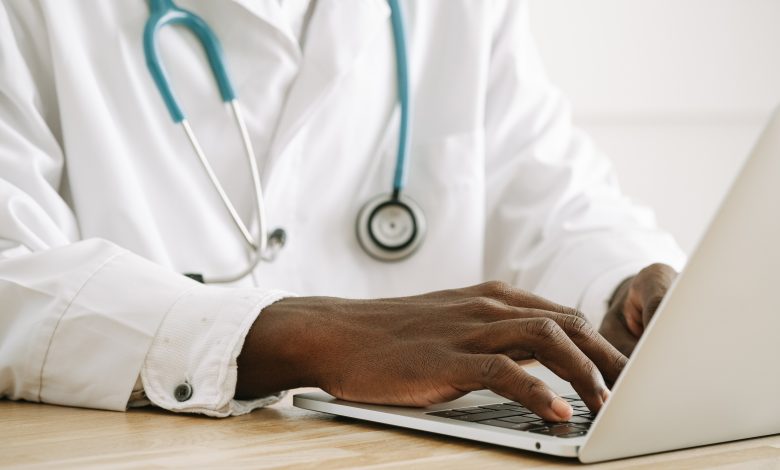5 Ways Healthcare Technology Has Changed in the 21st Century

The 21st century has witnessed remarkable advancements in technology across various industries, and healthcare is no exception. From diagnosis to treatment, patient cares to data management, healthcare technology has transformed the way medical professionals operate and patients experience healthcare.
1. Precision Medicine and Personalized Treatments
In the past, medical treatments often followed a one-size-fits-all approach, which didn’t take into account the individual variations in genetics, lifestyles, and environments. However, with the advent of genomics and data analytics, healthcare has transitioned towards precision medicine, a revolutionary paradigm that tailors treatments to the specific needs of each patient. This approach considers a patient’s genetic makeup and other personal factors to guide medical decisions, leading to more targeted and effective interventions. Through genetic testing, doctors can now identify potential genetic predispositions to certain diseases, allowing for proactive interventions and personalized disease management strategies. Moreover, personalized medicine extends its influence to the customization of drug regimens, where pharmacogenomic insights enable the selection of medications and dosages that maximize efficacy while minimizing adverse effects. The integration of precision medicine into healthcare not only enhances patient outcomes but also has broader implications for medical research, drug development, and public health strategies, positioning it as a cornerstone of 21st-century healthcare advancements.
2. Telemedicine and Remote Patient Monitoring
The proliferation of high-speed internet and mobile devices has given rise to telemedicine, transforming the way patients access healthcare services. Telemedicine allows patients to consult with healthcare professionals remotely, enabling timely medical advice and reducing the need for in-person visits, particularly beneficial in rural or underserved areas. Moreover, remote patient monitoring devices enable the continuous tracking of vital signs, chronic conditions, and post-operative progress. This real-time data transmission empowers healthcare providers to intervene swiftly in case of any concerning developments, enhancing patient safety and care quality.
3. Electronic Health Records (EHRs) and Data Management
The shift from traditional paper-based medical records to the digital age has been one of the defining transformations in 21st-century healthcare. The advent of Electronic Health Records (EHRs) has not only eliminated the cumbersome nature of physical records but has also revolutionized how patient information is managed and accessed. These centralized digital repositories have evolved into powerful tools that store comprehensive patient data, ranging from medical histories and diagnoses to test results and treatment plans. EHRs transcend the boundaries of individual healthcare facilities, facilitating seamless information sharing among different providers and specialists, ensuring a more coordinated and holistic approach to patient care. This interconnectedness of patient data helps avoid the pitfalls of fragmented information, reducing the likelihood of medical errors stemming from incomplete or inaccurate records. However, the impact of EHRs goes beyond improved patient care; the accumulated data within these systems serve as invaluable resources for researchers and policymakers alike. The aggregated and anonymized data from EHRs allow for data-driven insights into disease trends, treatment outcomes, and healthcare utilization patterns, enabling evidence-based decision-making. This synergy between electronic health records, medical research, and public health initiatives fosters a cycle of continuous improvement, where real-world data informs medical advancements, leading to more effective interventions and better health outcomes for individuals and populations alike.
4. Artificial Intelligence and Medical Diagnostics
Artificial Intelligence (AI) has found a promising niche in healthcare, particularly in medical diagnostics. AI algorithms can analyze medical images, such as X-rays and MRIs, with unprecedented accuracy, assisting radiologists in detecting abnormalities that might go unnoticed by the human eye. Additionally, AI-powered predictive analytics can identify patterns in patient data to forecast disease outbreaks and allocate resources efficiently. Chatbots driven by AI have also gained popularity, providing patients with instant medical information and support around the clock.
5. Robotic-Assisted Surgery and Minimally Invasive Procedures
Advancements in robotics have revolutionized surgical procedures, making them less invasive and more precise. Robotic-assisted surgery allows surgeons to perform complex procedures with enhanced dexterity and minimal tissue disruption. This results in shorter hospital stays, quicker recovery times, and reduced post-operative pain for patients. The Da Vinci Surgical System, for instance, has enabled intricate surgeries with smaller incisions, translating into improved patient outcomes and reduced surgical risks.
The healthcare landscape of the 21st century has been reshaped by transformative technological innovations. As technology continues to evolve, the healthcare industry will likely witness even more groundbreaking changes, further solidifying the role of technology as an indispensable asset in modern healthcare practices.





